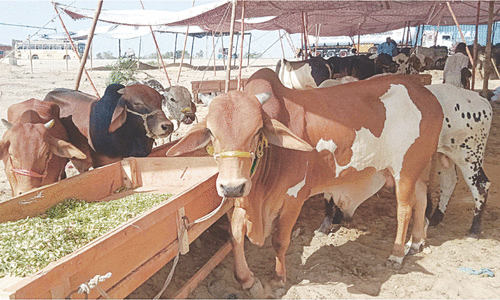THE warning from the governor of Balochistan regarding the risks that the depleting water resources of his province pose to the China-Pakistan Economic Corridor needs to be taken seriously.
It has been many decades now that Balochistan’s water table has been falling, and some of the numbers reported recently on the gap between water requirements and availability for the provincial capital of Quetta are truly alarming.
One project — Mangi dam — is in its earliest stages of development; it is supposed to help plug less than half of this reported gap, but outside of Quetta city, the problem of falling groundwater tables afflicts all regions to the point where tube wells have become a large cottage industry, numbering as many as 15,000 in the province according to some estimates given by officials from the provincial power distribution company. Tube wells also account for the bulk of unpaid dues of the power utility.
In every way, the depletion of freshwater resources in the province, in the face of a growing population, is a disaster in slow motion in Balochistan, to the point where the influx of migrants to Quetta is now often ascribed to people moving on account of the depleted water reserves in their home district.
Much of the province’s irrigated agriculture relies on tube wells which have seen runaway growth since the late 1980s.
Today, the problem of groundwater pumping and falling water tables has become so acute that the subsidies provided on electricity for tube wells is reportedly larger than the cost of building the dam and its water conveyance system for Quetta.
Almost half the livelihoods in the province are dependent on agriculture according to World Bank estimates, and water depletion in irrigated areas will increase the threat to the sustainability of these livelihoods in the years to come.
The water crisis in Balochistan is widespread, it is real and it is growing. In the midst of this reality, the government sounds a little disconnected when it touts the roads, power plants and industrial estates as the prime benefits that the province of Balochistan will derive from the bouquet of CPEC projects.
Was enhancing water capacity in the province, whether through increasing storage or superior utilisation techniques, even considered a possible benefit to tap for the province when the menu of CPEC projects was decided upon? Going by the governor’s warning, the answer appears to be in the negative.
Published in Dawn, March 21st, 2016









































